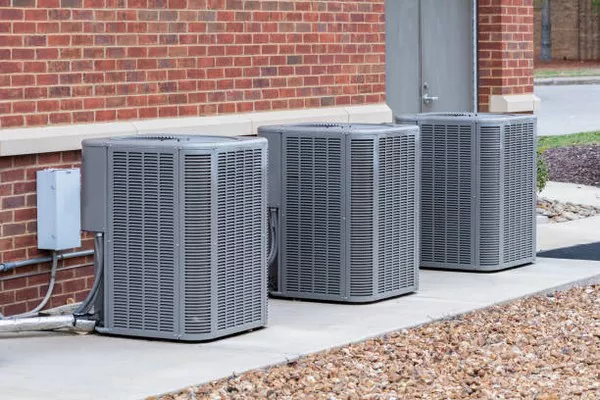Refrigerators are essential appliances in any modern household, responsible for preserving food and maintaining its freshness. However, like any mechanical device, they are susceptible to wear and tear over time. One critical component that can often require replacement is the compressor. When faced with a malfunctioning compressor, homeowners are often left wondering about the cost implications of repair or replacement. In this article, we delve into the factors influencing the cost of replacing a compressor in a refrigerator and provide insights into making informed decisions regarding this crucial repair.
Understanding the Role of the Compressor
The compressor serves as the heart of a refrigerator’s cooling system. Its primary function is to compress the refrigerant gas, raising its temperature and pressure. This high-pressure gas then flows through the condenser coils, where it dissipates heat and condenses into a liquid. The liquid refrigerant passes through the expansion valve, where it undergoes a rapid pressure drop, resulting in cooling. This cooled refrigerant then absorbs heat from the interior of the refrigerator, keeping the contents cool.
Signs of Compressor Failure
Recognizing the signs of compressor failure is essential for timely intervention. Some common indicators include:
Inadequate Cooling: If your refrigerator fails to maintain the desired temperature despite proper settings, it could signal compressor issues.
Unusual Noises: Loud or unusual noises, such as banging, rattling, or buzzing, emanating from the refrigerator could indicate compressor problems.
Excessive Cycling: A compressor that frequently turns on and off, known as short cycling, may be malfunctioning.
Visible Damage: Physical damage to the compressor, such as oil leaks or bulging, indicates a need for immediate attention.
If you notice any of these signs, it’s advisable to consult a professional technician to assess the situation and recommend appropriate measures.
Factors Influencing Replacement Costs
Several factors influence the cost of replacing a compressor in a refrigerator. Understanding these factors can help homeowners anticipate expenses and make informed decisions:
Brand and Model: The brand and model of the refrigerator play a significant role in determining replacement costs. High-end or specialized models may have more expensive compressors, resulting in higher replacement costs.
Age of the Appliance: Older refrigerators may have outdated or discontinued compressor models, making replacement parts harder to find and potentially more expensive.
Type of Compressor: Refrigerators can feature different types of compressors, including conventional reciprocating compressors and newer inverter compressors. Inverter compressors tend to be more energy-efficient but may also be more expensive to replace.
Labor Costs: The cost of labor for compressor replacement varies depending on factors such as location, technician expertise, and the complexity of the repair.
Warranty Coverage: If the refrigerator is still under warranty, the cost of compressor replacement may be partially or fully covered by the manufacturer. However, homeowners should check the warranty terms and conditions for details.
Average Cost Estimates
While exact costs can vary significantly based on the factors mentioned above, it’s helpful to provide some average estimates to give homeowners a general idea:
Parts Cost: The cost of the compressor itself can range from $200 to $600 or more, depending on the brand and type.
Labor Cost: Labor charges for compressor replacement typically range from $200 to $500, depending on the complexity of the job and local labor rates.
Total Cost: Considering parts and labor, the total cost of replacing a compressor in a refrigerator can range from $400 to $1100 or more.
It’s important to note that these are rough estimates, and actual costs may vary based on individual circumstances. Additionally, additional repairs or component replacements may be necessary, further impacting the total cost.
Making Informed Decisions
When faced with a malfunctioning compressor, homeowners have several options to consider:
Repair vs. Replacement: In some cases, repairing the compressor may be feasible and cost-effective, especially if the refrigerator is relatively new or under warranty. However, if the compressor is severely damaged or nearing the end of its lifespan, replacement may be the more practical long-term solution.
Professional Assessment: Consulting a qualified technician for a thorough assessment is crucial. They can diagnose the issue accurately, provide repair or replacement options, and offer cost estimates.
Consider the Overall Condition: When deciding whether to repair or replace the compressor, consider the age and condition of the refrigerator. If other components are also showing signs of wear, investing in a new appliance may be more economical in the long run.
Energy Efficiency: Upgrading to a newer, more energy-efficient refrigerator may offer long-term cost savings on energy bills, offsetting the initial investment.
See Also How To Find Cfm Of Compressor
Conclusion
The compressor is a critical component of a refrigerator’s cooling system, and its proper functioning is essential for preserving food and maintaining optimal temperatures. While the cost of replacing a compressor can vary depending on various factors, homeowners can make informed decisions by understanding the underlying factors influencing replacement costs and weighing the available options. By consulting qualified technicians, considering warranty coverage, and assessing the overall condition of the appliance, homeowners can ensure the longevity and efficiency of their refrigerators for years to come.

